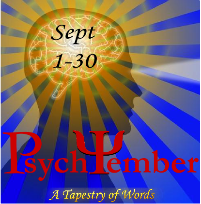First, a bit about Trish and the book:
"I've been a writer as long as I've been able to write, but I didn't make a conscious decision to "be" a writer until fairly recently. For that you should probably be thankful.
I was born in Germany, grew up in Ohio, went to college at Ohio State University, got married to someone really great, bounced from Maine to Michigan and back to Ohio for awhile. Now I live in Florida with my two mostly grown kids, two dogs, and a pirate. For real.
I've worked as a morning radio personality, a newspaper reporter, and spent all my summers in college working at an amusement park. There I gained valuable life skills, including counting money really fast, directing traffic, jumping off a moving train, and making cheese-on-a-stick. Also, I can still welcome you to Frontier Town. Ask me sometime.
These days I work as a bookseller at a Very Big Bookstore. And I write." (from her website)
"When Travis returns home from a stint in Afghanistan, his parents are splitting up, his brother’s stolen his girlfriend and his car, and he’s haunted by nightmares of his best friend’s death. It’s not until Travis runs into Harper, a girl he’s had a rocky relationship with since middle school, that life actually starts looking up. And as he and Harper see more of each other, he begins to pick his way through the minefield of family problems and post-traumatic stress to the possibility of a life that might resemble normal again. Travis’s dry sense of humor, and incredible sense of honor, make him an irresistible and eminently lovable hero." (from Goodreads)
And now for the questions...
1.) In addition to some traditional symptoms of post-traumatic stress disorder, Travis also experiences a more unusual symptom — hallucinations. Psychosis is not currently one of the diagnostic criteria for PTSD (according to the DSM-IV), but has certainly been known to occur in conjunction with it. Why did you choose to give Travis this symptom? In particular, how do you feel Travis' hallucinations of Charlie affect the reader's understanding of his character and behaviour?
When I first imagined SOMETHING LIKE NORMAL, I planned for Travis to be physically wounded. He was missing a leg. But the logistics of getting him from point A to point B in every scene became overwhelming, and I started brainstorming ways to manage this. Then I read the memoir of a Marine's experience with PTSD (Soft Spots: A Marine's Memoir of Combat and Post Traumatic Stress Disorder by Clint Van Winkle) and I realized that not all wounds are physical. I think Travis' hallucinations--my cues for which came from Clint's personal experiences--bring the reader a better understanding of what Charlie meant to Travis and how his guilt keeps Charlie alive.
2.) Harper's presence obviously helps to calm Travis down and relieve his anxiety on more than one occasion. How important do you think social support is for individuals struggling with PTSD? What benefits would you say it provides that medication or therapy do not? Are there any ways you feel friends or family might unintentionally hinder an individual's recovery?
I think the underlying message I've received from people suffering from PTSD is that it's part of their lives but not their whole lives. They may need medication and therapy, but the social support goes a long way in helping them feel "normal." There is a scene in SOMETHING LIKE NORMAL in which Travis spends a day fishing with his friends and enjoying time with Harper, and he feels the closest to good that he's felt in a long time. While I'm not an expert, it seems logical that spending time with supportive friends and engaging in positive activities would work well in concert with medication and therapy. And again, while I'm not widely studied on PTSD, I would venture that trying to force an individual suffering from PTSD to talk about before he or she is ready would be unhelpful, even if well-meant.
3.) Travis and Kevlar both exhibit difficulty in re-adapting to life in the US, but they demonstrate this in different ways. Do you think one of them has healthier coping mechanisms? In the long-term, who do you think will be more successful in overcoming their psychological distress?
I worry that Kevlar's problem avoidance and adrenalin addiction could be a collision course for disaster. I haven't really attempted to look into his future, but reading stories about soldiers with similar coping mechanisms seem to end with the individual developing more problems or ending in death. While I'd like to think that Travis is on the better road to recovery, I left him very deliberately at the end of SOMETHING LIKE NORMAL. He's acknowledged his problems and sought help, but what happens when he returns to Afghanistan? As an infantry Marine, it's unlikely he'd continue treatment while in-country, so we can only hope that the support group he's developed (his mom, Harper, Charlie's mother) and his therapy journal, will be a strong enough foundation to carry him through. That said, I think he's more likely to succeed than Kevlar.
4.) The stigma of mental illness in the Marines is briefly touched on in Something Like Normal. How large a factor would you say this attitude played in Travis' reluctance to seek professional help? In what ways would you suggest the system be changed to better accommodate veterans dealing with mental health issues?
I asked a former Marine what advice he would give to an active duty Marine who recognizes he has a problem, but fears seeking mental health treatment within the organization and his advice was to do it privately through a non-military professional and pay out of pocket. Stay off the radar. While he was speaking from his own experience, I'd be willing to bet it's a pretty clear window on the stigma of seeking help within the system. I'm not sure the answer, but I've read a lot of stories about going to the VA and coming out with pills. And while I think medication can be helpful, I think getting individual (or even group) therapy helps. I know some Marine vets get together to have beers and talk, and I feel like talking is the key. Primarily with people who understand or have been there.
5.) Your next YA novel, All That Was Lost, involves a girl whose mother has bipolar disorder. Can you give us a sneak peek of what we can look forward to?
In ALL THAT WAS LOST, Callie's mother suffers from borderline personality disorder, but--like the PTSD in SOMETHING LKE NORMAL--I approach the subject with a light hand. Callie is dealing with many issues when her story begins and her mother is just one of them. While her life is not unaffected by her mother's illness, the story is primarily about family and the meaning of home. Here's a short snippet from the beginning of the story, when Callie is still with her mother and does not yet fully understand that her mother even suffers from a disorder:
I wonder what set her off this time. It could have been something the man in the leather jacket said. It’s as if she hears things at a different frequency, the way a dog picks up sounds the rest of us miss. Or maybe she hears something that isn’t really there at all. Either way, when she’s ready to go, there is no arguing. There is only leaving.
Thanks very much for these thoughtful answers to my questions, Trish! I'll be keeping an eye out for All That Was Lost come 2013 :)
Trish has generously offered up a copy of Something Like Normal for a giveaway!
The rules:
- Entrants must be 13 years or older.
- Open internationally
- One entry per person
- Following and tweeting are not necessary but always appreciated!
- Ends Sept 30, at 11:59 pm EST.
- Winner will be selected randomly and contacted by e-mail
To enter, please fill in THIS FORM. Comments are awesome but do not count as entries.

























